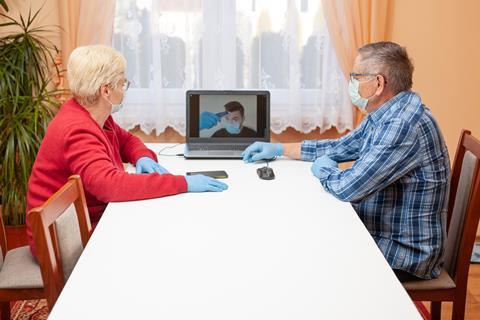At a time when we are all being asked to avoid contact with anyone outside our household, older people, especially the over-70s who are among those particularly vulnerable to Covid-19, are likely to be more reliant on their local communities for support.

Recent ONS data reports that over a quarter (28.2%) of people aged over 70 in England receive help such as shopping for groceries, taking medications, or doing work around the house or garden. And this figure is only likely to increase.
At a time of crisis, what role does technology play in supporting the most vulnerable people?
The advantage of technology is that it’s malleable. It can be shaped to address both short- and long-term concerns. Proptech has a crucial role to play in the immediate term and managers and developers, especially those specialising in later living, need to invest the time and fast-track tech solutions that provide a one-stop-shop in aiding the most vulnerable.
In recent research from Lloyd’s Bank, one in five people said going online helps them feel less alone. The research also found that basic digital skills enable people to connect and communicate with family, friends and the community 14% more often.

A user-friendly, inclusive service that enables residents to do simple things such as ordering food and medicine, and stay in touch with friends and family when they can’t leave the house, would be hugely beneficial and alleviate pressure on already stretched social workers and other key workers.
In the longer term, investors and developers need to factor in tech solutions, especially to cater for those over 55, many of whom are downsizers looking for a home needing minimal maintenance to enjoy their later years.
The challenge is that we have two generations within this demographic: one that is tech-savvy and one with no tech experience at all. This is why finding simple solutions that aren’t onerous is crucial in ensuring that developments are suited to older generations.
Locale’s Groups service, for example, enables residents to chat among themselves, with the building manager or with the concierge, but can also provide a tool for communicating with residents’ friends and family to provide a comprehensive network of support and thus peace of mind. The platform is not limited to communication and can be tailored to your community’s needs.
Future-proofing any platform like this is essential. We are already finessing technology such as voice-activated tools and face recognition, which remove the need for physical interaction with a screen.
In addition to later-living developers, other players in the market, such as build-to-rent and urban developers, are catering to these needs with on-site amenities. For the over-55s, these are attractive options offering the same facilities and community without the charges for extra care.
Alternative offerings with appropriate tech aids can help to ease the pressure on care homes, alleviating the strain on social services to allow older generations to live independently and feel more in control for longer.
Rob Maxwell is residential manager of Locale





























No comments yet